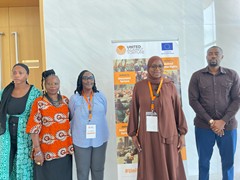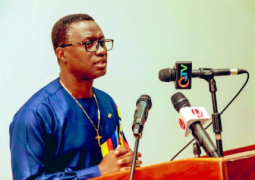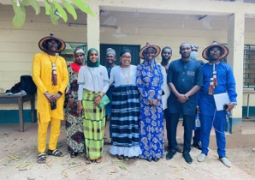
Among the participants was Nigerian survivor Ogoke Ngozi, who shared her personal story of survival and recovery. “I came into contact with United Against Torture shortly after my ordeal. They rehabilitated me, empowered me, and gave me the courage to speak up,” she said, her voice trembling with conviction. “No human deserves to be tortured. Speaking out creates awareness, and awareness is what we need to stop torture.”
Ngozi, who now advocates for survivors’ rights, said she will continue using her voice to create awareness and inspire others not to suffer in silence. “When we hide our pain, we strengthen the culture of silence. But when we speak, we strengthen the movement against torture,” she told journalists.
The interface with the media followed a two-day international conference hosted by the United Against Torture Consortium, a global network of over 400 civil society organizations working to end torture, promote rehabilitation, and strengthen accountability mechanisms worldwide.
Sira Ndow, of the African Network Against Extrajudicial Killings and Enforced Disappearances (ANKED), said the meeting brought together over 45 participants from 15 countries to share experiences, identify challenges, and build collective strategies to end torture. “It is important to consolidate efforts, share resources, and learn from each other so that we can achieve our global goal of eliminating torture everywhere,” she emphasised.
Priscilla Yagu Ceesay, Co-founder and Senior Technical Advisor of the Association for Women and Victims Empowerment (WAVE), announced that a stakeholder engagement will be held to advocate for the ratification of the Optional Protocol to the Convention Against Torture (OPCAT) and the establishment of a National Preventive Mechanism (NPM) in The Gambia an independent body to monitor detention facilities and prevent abuse.
Wangechi Grace, Executive Director of the Independent Medico-Legal Unit (IMLU) in Kenya, noted that the discussions focused on survivor-centered approaches, accountability, and prevention of torture in both custodial and non-custodial settings. “Governments must understand that there is no place for torture in this world. We must work collectively to make it a thing of the past,” she said, commending The Gambia for showing progress in rights protection.
Lisa Henry, a board member of the United Against Torture Consortium, described The Gambia as a “progressive country showing Africa how to implement anti-torture legislation.” She praised the European Union and other partners for funding the initiative and urged continued support for survivors. “Torture destroys trust in the rule of law and the human spirit,” she said. “It does not belong in The Gambia, nor anywhere in the world.”
The United Against Torture Consortium, comprising six major global anti-torture organisations, continues to support survivor-led interventions, legal reforms, and advocacy to ensure that torture becomes an offense of the past.
Read Other Articles In Headlines




